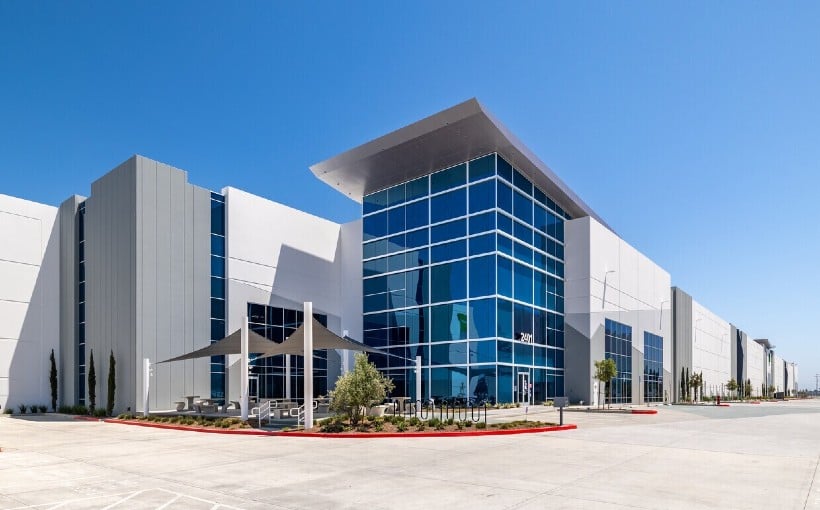**WEF Global Economists’ Outlook, Through U.S. Economists’ Eyes**

The main theme of the recently released World Economic Forum’s Chief Economists Outlook can be summed up in two words: trade policy. The report attributes spiraling economic uncertainty to “unprecedented increases in bilateral tariffs between the U.S. and other countries.”
Beyond trade tensions, the survey also pointed to weakening overall growth prospects. While artificial intelligence and real estate garnered discussion, U.S. economists—particularly those familiar with commercial real estate—highlighted that much more than trade and tariffs are influencing today’s economic environment.
### So, Is the Sky Falling?

*Ray Perryman*
Experts acknowledge the economic uncertainty flagged in the report. “Constantly shifting trade policies are creating economic uncertainty across the globe, and the U.S. is among the key drivers of the chaos,” said Greg Willett, Chief Economist at LeaseLock.
However, many of the experts were surprised by the report’s overall pessimism. Ray Perryman, President and CEO of The Perryman Group, noted that while negativity wasn’t unwarranted, the timing of the survey—conducted from April 3 to 17 during peak tariff developments—may have amplified the gloom.
Jonathan O’Kane, Vice President at Chandan Economics, agreed, noting the strong consensus around uncertainty. “Trade policy, artificial intelligence, and inflation are acting as structural variables reshaping the global economy, rather than short-term headwinds,” he said.

*Jonathan O’Kane*
Inflation, O’Kane added, remains persistent in specific regions. Trade policies, in particular tariffs and export controls, are evolving from economic tools to instruments of industrial policy—redefining rules for global commerce.
Ryan Severino, Chief Economist and Head of Research at BGO, suggested that the U.S. is relatively well-positioned. “Do I think trade policy will slow U.S. economic growth? Sure. But do I think other developed economies like the UK, Eurozone, and Japan will grow faster than the U.S.? No,” he said. Despite concerns around inflation and slower growth, Severino still expects the U.S. to outperform many other economies.
### But It’s Not Just the U.S.

*Ryan Severino*
Globally, other forces are stoking the economic turbulence identified in the WEF survey. Experts point to growing skepticism around globalization in multiple countries, replaced by rising nationalism. Severino sees a global pushback against interdependence fueled by populist ideologies.
Perryman traced current conditions back to the aftermath of the pandemic and related supply chain disruptions. He cited increased dissatisfaction with policies on immigration and climate as diverging national priorities that could lead to less global integration.
Overlapping international issues also complicate the picture. O’Kane highlighted China’s uneven recovery, Europe’s ongoing energy transition, and instability in critical trade areas such as the Red Sea. “While proposed tariffs and political uncertainty in the U.S. are certainly adding fuel to the fire, the broader outlook is shaped by overlapping shocks,” he said.

*Greg Willett*
Ongoing conflicts such as the war in Ukraine and tensions in the Middle East further derail global stability by disrupting supply chains. According to Perryman, these conflicts create unpredictability that exacerbates the economic uncertainty.
Compounding the situation is the U.S.’s unpredictable trade policy. “The U.S. tariff policy, essentially an unforced error, hit particularly hard,” Perryman stated. O’Kane added, “The U.S. may be one of the largest logs on the fire, but it’s still just one part of a much more complex picture.” The world now faces a fragmented global economy where regional risks ripple across borders.
### The CRE Impact
While the WEF survey didn’t address commercial real estate (CRE), many U.S. experts connected its findings to implications for the sector.
O’Kane warned that the current environment—marked by uncertainty, economic fragmentation, and recalibration—is reinforcing a risk-sensitive CRE landscape. Globally, this could lead to reduced cross-border investments and a turn toward more localized capital allocation.
In the U.S., rising construction costs from tariffs and financing challenges are expected to constrain new developments, particularly in housing, O’Kane noted.

Despite headwinds, U.S. commercial real estate may emerge in a relatively strong position. “While some foreign investors are hesitant, North American real estate still has a compelling long-term performance record,” Willett said. He emphasized that current political developments may not drastically shift the U.S.’s position in global economic dynamics.
Severino supported that view, explaining that CRE is a long-term asset class and therefore less affected by short-term turmoil. “Even though investors and developers may be exercising caution now, commercial real estate should continue to perform well in the long run,” he said.
Perryman and O’Kane noted that the real estate market is not a monolith—performance will vary across sectors and geographies. Logistic and industrial properties, for instance, may benefit from global supply chain realignments. Meanwhile, office and retail properties will see mixed outcomes depending on location and asset quality.
Ultimately, CRE’s success hinges on corporate health. Strong companies drive leasing and ownership activity. “Countries with the most resilient economies will see better performance in their commercial real estate markets, though remote work and other changes will play an ongoing role,” Perryman concluded.




